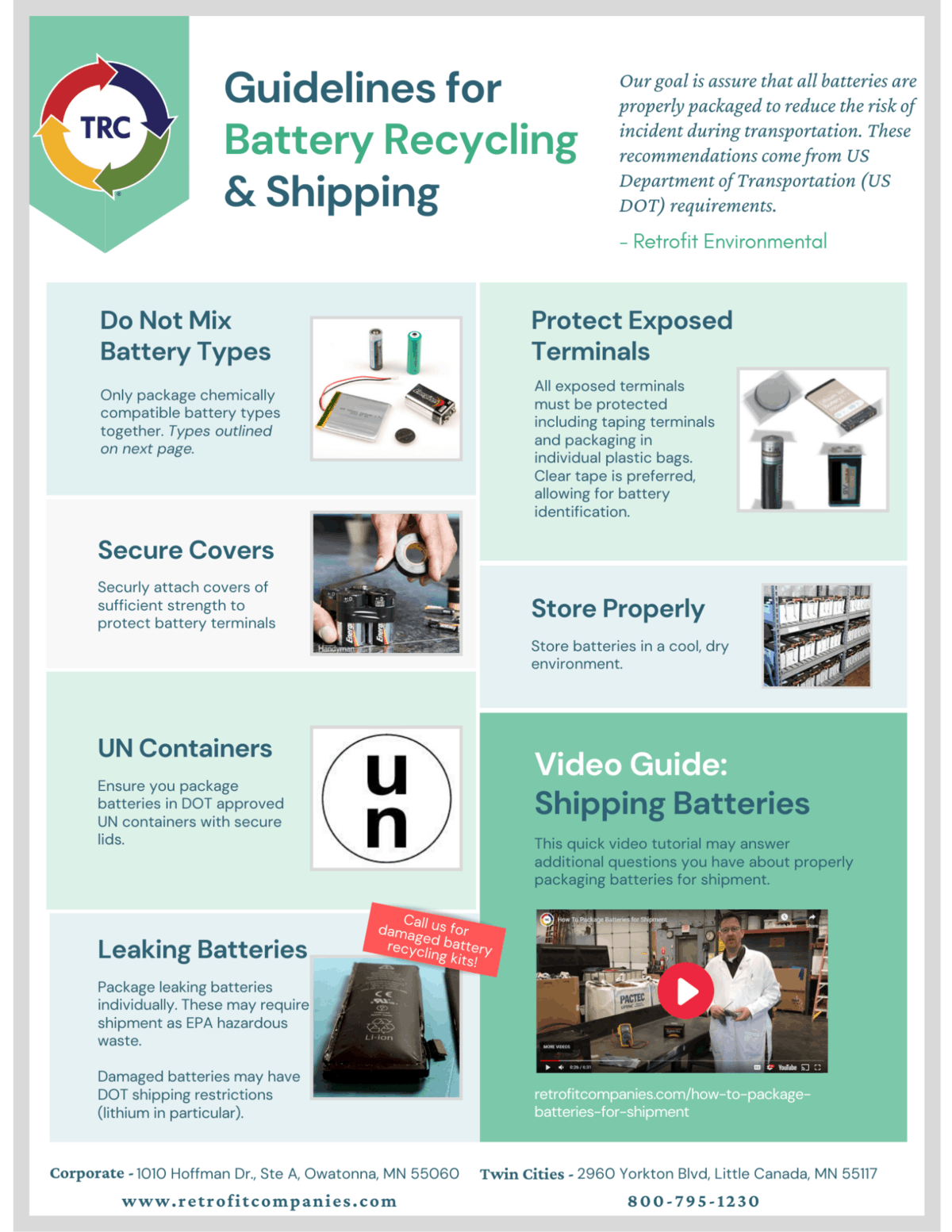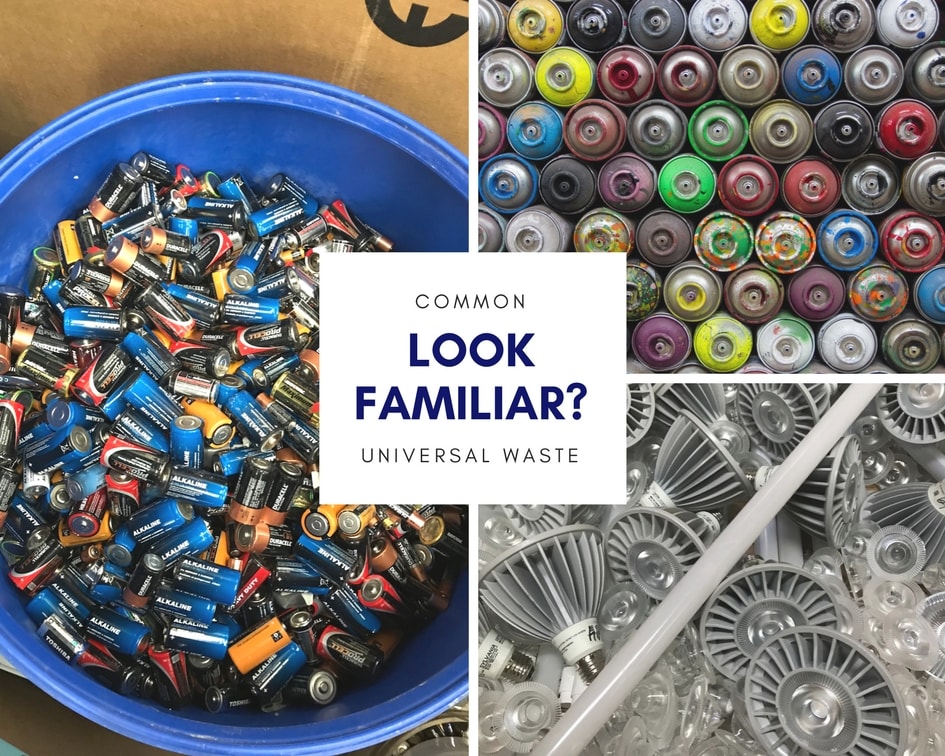What is Universal Waste
Universal wastes are a subset of hazardous wastes that may be accumulated and transported under reduced requirements.
These wastes are referred to as universal wastes because, at some point, almost every business and government agency generates them. Universal waste recycling is a process that every business should identify, plan for and regulate properly.

Common Universal Waste
- Batteries: Includes any hazardous waste electro-chemical storage device that consists of an anode, cathode, and electrolyte. Learn more about battery recycling with our free Battery Recycling Guide download.
- Lamps: Includes any hazardous waste bulb or tube portion of an electrical lighting device. Certain fluorescent lamps are designed to pass the hazardous waste test for mercury, and are commonly labeled as ‘low mercury’ or by having green-colored metal end caps, known as ‘green tips’. These lamps do still contain mercury, and in Minnesota, must still be recycled. Please see the Universal Waste: Guidance for Minnesota Handlers for more details. LEDs Although the bulb portions of most light-emitting diodes (LEDs) are not hazardous and thus not universal waste lamps, the attached circuit boards are regulated electronic wastes in Minnesota | MPCA fact sheet #w-hw4-15, Managing Electronic Wastes
- Mercury-containing equipment: Includes any discarded device that contains liquid mercury.
- Aerosols: Includes products in a pressurized container that are pushed through a nozzle by some chemical propellant (ex. Spray paint). Managing aerosols as a universal waste is available to companies in Minnesota and Iowa (as of 2/7/2020). Read about our Aerosol Can Recycling Program.
How to Package Batteries for Shipment
Steve Jacobs, Environmental Services Director for The Retrofit Companies, Inc., shares tips on how to follow proper packaging guidelines for common battery types, including alkaline, lithium, lead acid and nickel cadmium. Learn More.
Non-Universal Waste
Waste streams commonly confused with universal waste:
- Non-hazardous batteries
- Electronic waste
- Architectural paint waste
- Lighting ballasts
- Small capacitors containing polychlorinated biphenyls (PCBs)
Each of these has its own management requirements. Contact our Environmental Team for more information on how to properly manage these wastes.
What Are My Compliance Risks?
Common mistakes when handling any type of waste, including Universal Waste Recycling. All of the following errors can lead to citations and fines:
- Unmarked or improperly labelled containers
- Lack of accumulation start date or inventory
- Improper storage
- Failure to identify state regulations
Need some help? Schedule a call with our rep.
Recycling Options
There are many options available. Our recommendations are below:
- Licensed Waste Handler: The Retrofit Companies, Inc. is a licensed regulated waste transporter, and 10-day transfer facility, with a network of downstream vendors that ensure proper and responsible recycling practices.
- Community Collection Event: Many communities offer events once or twice a year to offer residents a proper outlet for Universal wastes, and other waste, like Electronic waste. The Retrofit Companies, Inc. holds multiple collection events across the Upper Midwest every year. Check our Facebook page or Event Calendar for upcoming events in your county.
- Pre-Paid Recycling Service: For small quantities, package services like RecyclePak, offer an easy solution. You can order right from our website.
Universal Waste Resources
- Learn more from the source with this MPCA Universal Waste Guide
- LED lamp recycling in MN – MPCA fact sheet #w-hw4-15, Managing Electronic Wastes

